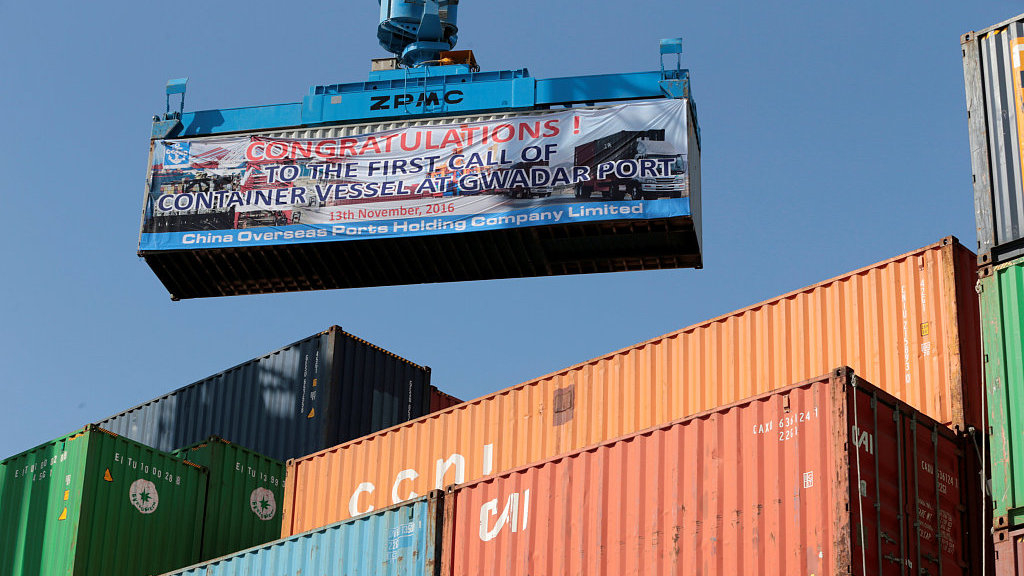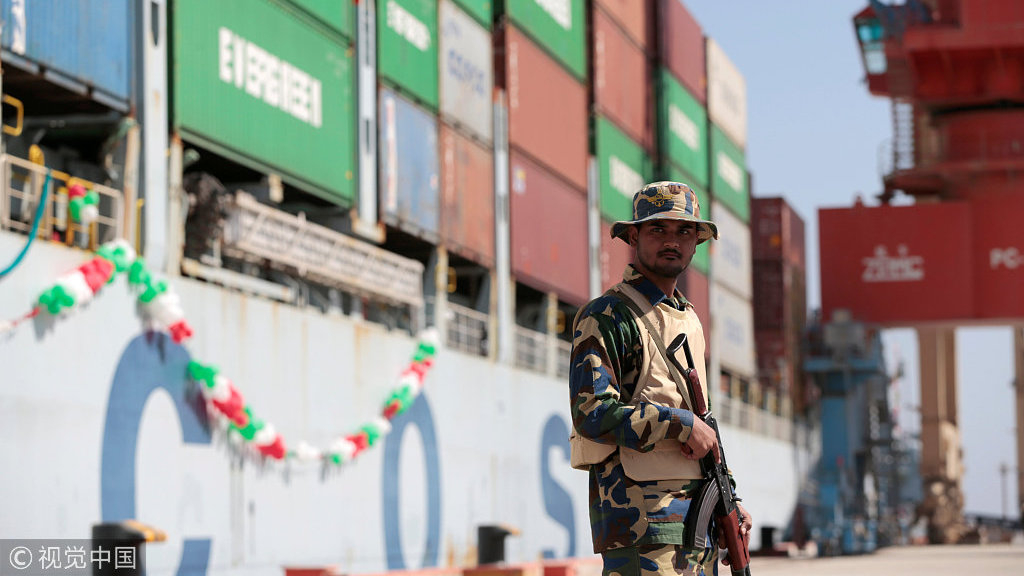
14:56, 29-Mar-2019
Belt and Road Initiative brings regional stability

"Concrete progress is going to be opportunities for more investments, job creation, economic uplift, technology transfer, and stability. The output is the stability of the region. And both sides stand to gain with enhanced stability and peace," Pakistan's Minister of Foreign Affairs Shah Mahmood Qureshi hailed the potential of the Belt and Road Initiative in a recent interview with CGTN's Liu Xin.
The foreign minister noted that stability is crucial not just for China-Pakistan bilateral relations but for economic activity as well, for money will only flow to where it's secure. "The more security we provide, the more money we will attract at this moment," he added.
In 2013, Pakistan and China reached an understanding to develop the China-Pakistan Economic Corridor (CPEC), which aims to improve connectivity and infrastructure between the two countries.
The CPEC follows a three-phase plan, with the first effective until 2020, while the next two phases will cover projects until 2025 and 2030.
Under the project, nine CPEC Special Economic Zones will be established. Currently, some of the SEZs are already under development, while others will soon begin development.
In the interview, Qureshi stressed that those special economic zones are not just confined to Chinese investment or Pakistani investment. Other countries are welcome to come and invest in them because China is laying the infrastructure, building connectivity with roads, rail and fiber optics.

On controversies surrounding the ambitious Belt and Road Initiative, Qureshi shared his opinion.
"Name me one project that's free of difficulties. Every initiative has difficulty, especially at the initial level. There are skeptics. There are people who doubt the whole concept, but with the passage of time, when dividends come, then they realize that is what visionary leadership is all about that. You and I cannot see. They are not only seeing that, but they are also placing things in place for our coming generations to benefit from."
SITEMAP
Copyright © 2018 CGTN. Beijing ICP prepared NO.16065310-3
Copyright © 2018 CGTN. Beijing ICP prepared NO.16065310-3